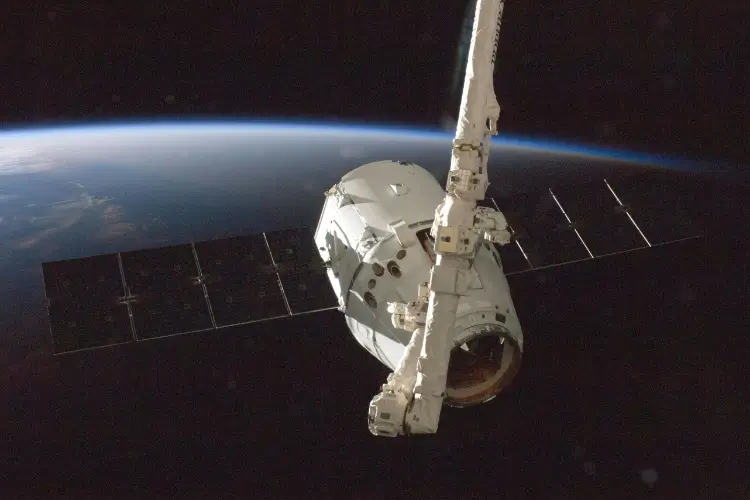The space industry rapidly evolves and captures the imagination of individuals and businesses alike. From advancements in technology to increased private sector involvement, the opportunities within this field are expanding. Whether you’re considering a career in space, looking to invest, or simply fascinated by the cosmos, there are several key aspects to understand.
5 Things to Know about Space Industry
The space industry encompasses a wide range of activities, including satellite communications, space tourism, and planetary exploration. Staying informed about these developments can help you navigate this exciting field effectively. Here are five crucial things to know if you’re interested in the space industry.
1. The Growth of Commercial Spaceflight
Commercial spaceflight has become one of the most dynamic areas of the space industry. Companies like SpaceX, Blue Origin, and Virgin Galactic are leading the charge, making significant strides in reducing the cost of space travel and increasing its accessibility. SpaceX’s successful missions to the International Space Station and its development of reusable rockets have set new benchmarks. These advancements are reshaping space travel and opening up new markets, such as space tourism and commercial satellite deployment. The entry of private companies has spurred innovation and competition, driving down costs and accelerating technological progress. For example, SpaceX’s Falcon 9 rocket has revolutionized launch economics with its reusability, while Blue Origin is working on suborbital space tourism with its New Shepard rocket. This shift towards commercial ventures is making space more accessible to smaller companies and even individuals.
2. Education and Skill Requirements
A career in the space industry typically requires a strong educational background in STEM (Science, Technology, Engineering, Mathematics) fields. Degrees in aerospace engineering, astrophysics, computer science, and related disciplines are highly sought after. Advanced degrees, such as a master’s or Ph.D., can further enhance your prospects, particularly for specialized roles in research, development, and space mission planning. Practical experience through internships and co-op programs with space agencies or private companies can also be invaluable. In addition to formal education, soft skills like problem-solving, teamwork, and adaptability are essential. The space industry often involves complex projects requiring collaboration across different disciplines and countries. Gaining hands-on experience through internships, participating in competitions, and engaging in research projects can help build these skills.
3. Investing in the Space Industry
Investing in the space industry is becoming increasingly attractive as the sector grows and diversifies. Publicly traded companies like SpaceX, through its Starlink project, and other space-related ventures offer various investment opportunities. Additionally, numerous startups are focusing on innovative technologies such as satellite internet, space mining, and space tourism. Understanding the market dynamics and technological advancements is crucial for making informed investment decisions. Investors should consider both the potential rewards and the risks involved. The space industry is capital-intensive and subject to regulatory scrutiny, which can impact the financial performance of companies. Read available quarterly investment reports from Space Capital and diversify your investments across different sectors within the space industry to mitigate risks. Staying informed about industry trends, technological breakthroughs, and regulatory changes will enable you to make better investment choices and capitalize on the growing opportunities in the space sector.
4. The Role of Government and International Collaboration
Government agencies like NASA, ESA, and Roscosmos continue to play a pivotal role in space exploration and research. These agencies collaborate with private companies and international partners to achieve ambitious goals, such as Mars exploration and the construction of the Lunar Gateway. Government funding and policies significantly influence the direction and pace of space industry developments. Understanding the role of these agencies and the regulatory environment is essential for anyone involved in the space industry. International collaboration fosters partnerships that transcend national boundaries. Projects like the International Space Station (ISS) exemplify the collaborative spirit necessary for complex space missions. Countries like China, India, and the UAE are becoming increasingly prominent players, contributing to a more diverse and competitive landscape. Keeping track of international developments and understanding the geopolitical implications can provide valuable insights into the future direction of the space industry.
5. Sustainability and Ethical Considerations
Sustainability is becoming a critical issue in the space industry as the number of satellites and space missions increases. Space debris, or “space junk,” poses a significant threat to both existing satellites and future missions. Companies and agencies are developing technologies to mitigate this problem, such as debris removal systems and designing satellites with end-of-life disposal plans. Sustainability in space also includes the responsible use of resources and minimizing the environmental impact of space missions. Ethical considerations, such as the potential militarization of space and the equitable use of space resources, are also gaining attention. International treaties like the Outer Space Treaty aim to regulate activities and ensure that space remains a domain for peaceful exploration and use. As the industry grows, addressing these ethical and sustainability challenges will be crucial for its long-term viability.
Conclusion
The space industry offers a plethora of opportunities, driven by technological innovation and expanding commercial activities. Whether you’re aiming for a career, planning to invest, or simply intrigued by the cosmos, staying informed about industry trends, educational requirements, investment opportunities, government roles, and sustainability issues is crucial. The dynamic nature of the space industry requires continuous learning and adaptation. By keeping these key aspects in mind, you can navigate this exciting field more effectively and contribute to its future. The space industry holds the promise of significant advancements and discoveries, making it an inspiring and rewarding area to explore.




